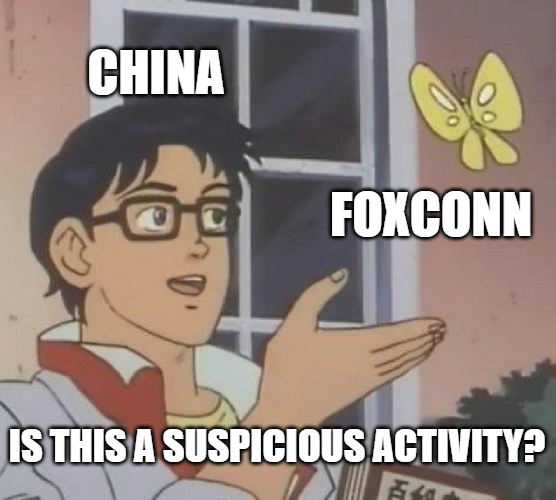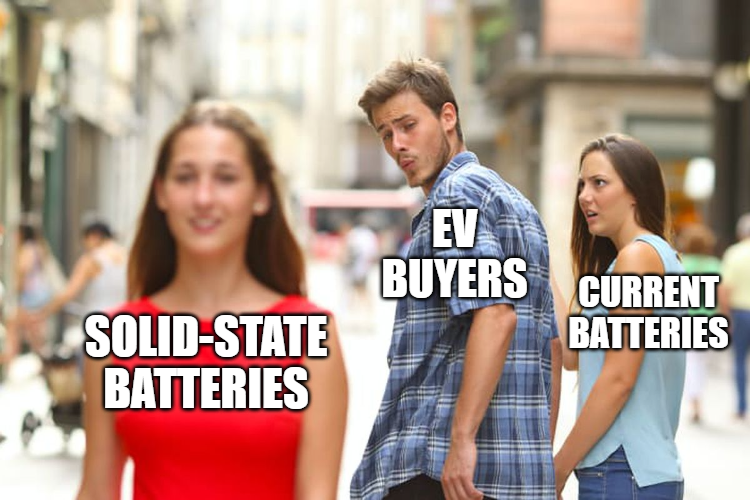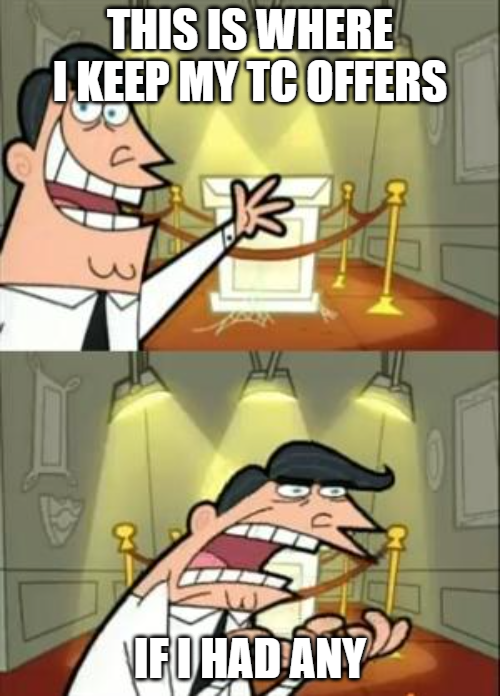China investigates Foxconn

Hi this is ZipLaw! We explain how news stories impact law firms so you can stand out in your applications.
Are you new here? Get free emails to your inbox.
Here’s what we’re serving today:
- China investigates Foxconn
- Toyota to roll out solid-state batteries
- KKR is in a bit of a pickle
- Who's winning Argentina's elections?
China investigates Foxconn
In Short: China’s got its microscope on foreign companies, particularly scrutinizing Foxconn, Apple’s key supplier.
1. What happened?
- Chinese authorities announced they're peeping into Foxconn’s tax docs and checking if they're hogging more land than they should.
- Soon after, a few big shots from WPP (huge advertising giant) were arrested. Add to that list an Astellas Pharma exec charged with suspected espionage.
- As news spread, Foxconn's stock dropped. Meanwhile, Luxshare Precision, a Foxconn competitor, saw their stocks climb up.

2. The Why Behind the Drama:
China isn't the most transparent when it comes to these regulatory actions. It's like your friend who's mad at you but won’t say why. Some insiders believe China’s leadership might be feeling jittery about too much foreign influence. Others speculate it's about the billionaire founder of Foxconn, Terry Gou, who's gunning for the president's seat in Taiwan, and China wants to flex its muscles a bit.
3. Why Does It Matter?
- Economic Impacts: If Foxconn sneezes, Apple might catch a cold. Given Foxconn's huge role in producing iPhones, any disruption could ripple across the tech industry.
- Political Tensions: With Gou in the presidential race for Taiwan and the ongoing Taiwan-China dynamics, the business moves might have deeper political undercurrents.
- Foreign Business Climate: If the big players like Foxconn and WPP are facing the heat, it sends a chilly message to other foreign companies in or eyeing China.
⚖️ How does this impact Law Firms?
Corporate Tax Law:
- Tax Compliance and Audits: Given China's scrutiny into Foxconn's tax dealings, corporate tax lawyers will be in high demand to ensure global corporations operating in China are compliant with local tax laws. They will guide multinational corporations in revisiting their tax strategies, optimising tax structures, and ensuring all appropriate filings are complete and accurate to prevent potential audits.
- Tax Dispute Resolution: In cases where discrepancies or disputes arise from tax investigations, tax lawyers will represent companies to negotiate settlements, challenge tax authority decisions, and handle any ensuing litigation. Their deep understanding of both domestic and international tax laws will be crucial in resolving disputes and minimising financial impact.
International Trade and Investment Law:
- Cross-border Compliance: With the backdrop of geopolitical tensions and increased scrutiny by China on foreign businesses, lawyers specialising in international trade and investment will be called upon to advise on navigating the complex regulatory landscape. They will guide businesses on how to maintain operations while staying compliant with both home country and Chinese laws.
- Foreign Direct Investment (FDI) Consultations: As foreign investor confidence might be shaken by such developments, lawyers will play a pivotal role in advising companies on FDI strategies. They will need to assess risks, secure necessary permits, and ensure that investments are structured in a way that minimises potential regulatory or political interference.
Employment and Intellectual Property (IP) Law:
- Employee Detentions and Rights: With the arrest of individuals from WPP and other firms, there will be a heightened need for lawyers specialising in the rights of detained foreign employees. They will negotiate for their clients' rights, ensure due process, and provide representation in any legal proceedings.
- IP Protection and Infringement Claims: With tensions escalating, there's a potential increase in intellectual property theft or misuse. IP lawyers will help companies safeguard their patents, trademarks, and copyrights in the Chinese market. They will also handle any infringement claims, ensuring that businesses can protect their innovations and brands from unlawful use or imitation.
Toyota to roll out solid-state batteries
In Short: Toyota is on the cusp of rolling out next-gen solid-state batteries that might just revolutionise the electric vehicle game.
Game-Changer or Overhyped Batteries?
Imagine your phone battery lasted twice as long and charged up while you made a quick sandwich. Sounds dreamy, right? That's the hope with solid-state batteries for EVs.

Current batteries are great and all, but they're a bit like a 2000s flip phone in a smartphone world. They have limitations. Solid-state batteries, once only a thing of fantasies, are looking to tackle concerns like slow charging times, limited capacity, and the slight, tiny, itsy-bitsy risk of catching fire.
So what's the fuss? Well, solid-state batteries are drama queens. They can't stand moisture or oxygen, and require the kind of precision in assembly that would put a Swiss watchmaker to shame.
But Toyota, ever the optimist, believes they’ve cracked the code on mass-producing them without the drama.
The burning question remains: how are they doing it? The secret sauce lies in the assembly process. Think of it like making the world's most complicated lasagna, where layers of cathode-anode cells (yep, that’s a real word apparently) need to be meticulously stacked, minus any room for error.
Plus, Toyota’s joining forces with energy group Idemitsu Kosan to concoct a new solid-state battery material, aiming to tackle durability concerns.
⚖️ How does this impact Law Firms?
Intellectual Property (IP):
- Patent Drafting and Prosecution: As Toyota progresses in developing its solid-state battery technology, lawyers will be instrumental in drafting and filing patent applications to protect these innovations. Given the competitive landscape of EV batteries, obtaining robust IP protection will be paramount. Lawyers specialising in IP will work closely with Toyota’s technical team, ensuring the correct technical nuances are captured in the patents and guiding the applications through various national patent offices.
- Licensing Agreements: As the technology becomes commercialised, there may be potential collaborations and partnerships with other companies. Lawyers will draft, negotiate, and review licensing agreements related to Toyota’s battery technology, ensuring terms are favourable, risks are mitigated, and the company’s intellectual property remains secure.
Commercial and Contract Law:
- Supply Chain Agreements: With the scaling up of production, Toyota will require a range of raw materials and components. Lawyers will negotiate, draft, and review supply chain contracts, ensuring they are robust and safeguard Toyota against potential disruptions, while also ensuring compliance with international trade and regulations.
- Joint Venture and Collaboration Contracts: Given the story mentions partnerships, like the one with energy group Idemitsu Kosan, lawyers will be pivotal in structuring, negotiating, and finalising joint venture and collaboration agreements. These documents will outline the terms of cooperation, sharing of intellectual property, profit distribution, and other crucial aspects of partnership.
Product Liability and Safety:
- Regulatory Compliance: As new technology, solid-state batteries will be subject to rigorous safety standards. Lawyers will guide Toyota in ensuring that its batteries meet all required safety standards in jurisdictions they are sold. They will also help Toyota navigate the complex regulatory landscape, making certain that all certifications and approvals are in place.
- Claims and Litigations: Should there be any incidents (like battery malfunctions or safety concerns), lawyers will advise and represent Toyota. They'll assess potential liabilities, handle any legal claims arising from product failures, and advise on necessary recalls or other corrective actions, always aiming to protect Toyota's brand and financial interests.
Did you know?
In Short: KKR is in a bit of a pickle. They owe Goldman Sachs' top clients a whopping $2.5 billion, and that number's only getting chunkier.
The Main Players:
- KKR: A major global investment firm.
- Goldman Sachs: Another big name in the finance world. They previously owned an insurance company called Global Atlantic.
- Global Atlantic: An insurance company that's central to this story.
The Story:
- The Big Purchase: Two years ago, KKR bought Global Atlantic from Goldman Sachs for $4.7 billion. It's a bit like buying a house but not the whole thing. KKR acquired 63% of Global Atlantic, hoping to expand into the insurance sector. This purchase was unique because KKR used its own money instead of pooling funds from outside investors.
- The Other 37%: The remaining portion of Global Atlantic (37%) went to the wealthy clients of Goldman Sachs. Imagine you bought most of a pie but left a few slices for your friend's guests. That's the 37% we're talking about.
- The Catch: There was a special condition in the deal. The minority shareholders (those owning the 37%) have the option, in the future, to tell KKR to either:
- Make their shares of Global Atlantic public (like listing them on the stock market), or
- Buy them out.
It's a bit like buying a car on a lease and having the option to either return it at the end or buy it outright.
- The Growing Debt: As time has passed, the amount KKR might need to buy out these minority shareholders has increased. It's now pegged at around $2.5 billion. If KKR decides to buy them out using its own shares as currency, they might need to issue around 42 million new shares, which dilutes the value of the existing shares.
- Disclosure Drama: KKR's annual report, a massive document detailing their financial year, vaguely hints at this potential financial obligation. It's like reading a long novel and finding only one sentence about the main plot twist. This lack of clarity has raised eyebrows in the financial community.
- A Precedent: Apollo, another investment firm, had a similar strategy with its insurance arm, Athene. They first bought a portion and then acquired the rest later, which turned out to be profitable.
In summary, KKR made a strategic purchase of Global Atlantic with a future financial obligation attached. As time passes, the cost of this obligation keeps growing, putting KKR in a potentially tricky situation.

Ludo's reading list

- Oil Biz Moves: Chevron’s snatching up Hess Corporation for a cool $53 billion. It's all about that shale game and making a mark in Guyana. Plus, ExxonMobil’s also dropping big money, picking up Pioneer for $60 billion. Major oil moves happening!
- U.S. Treasury Stuff: The U.S. government's 10-year borrowing rate (known as the Treasury yield) recently hit its highest point since 2007, reaching 5%. This increase was driven by the belief that the U.S. central banking system, the Federal Reserve, might keep interest rates elevated for a prolonged period.
- Argentina’s Election Drama: Against all odds, Sergio Massa from the Peronist coalition snagged the most votes in round one. Dude got 37%, beating out Milei who everyone thought would win. Now they're head-to-head in a November run-off. Massa’s also talking about teaming up with different parties.
- Big Pharma News: Roche is spending $7 billion on a new treatment for inflammatory bowel disease. They're eyeing RVT-3101, which is gearing up for big trials and is seen as a game-changer. On top of that, they’ve got another drug up their sleeve that’s slashing death rates from a rare lung cancer by 76%. Immunotherapy is changing the game!
👀 ZIPMEMES

Don't forget...
🙏 Our work is reader-supported. You can get a membership for cheap!
🎥 Follow us on Instagram here or TikTok here.
📫 Forward this to a friend and tell them to subscribe (hint: it's here).
